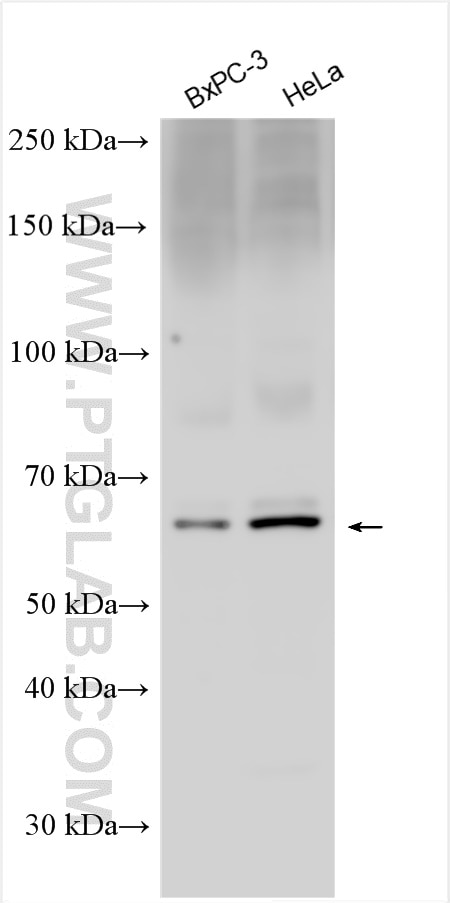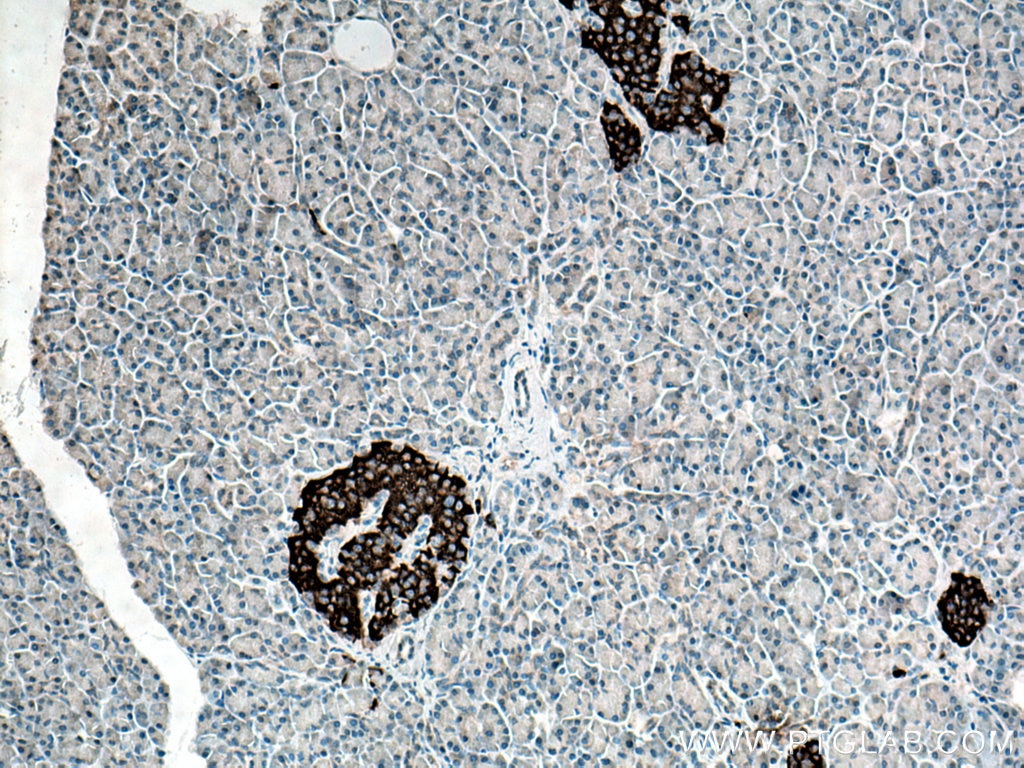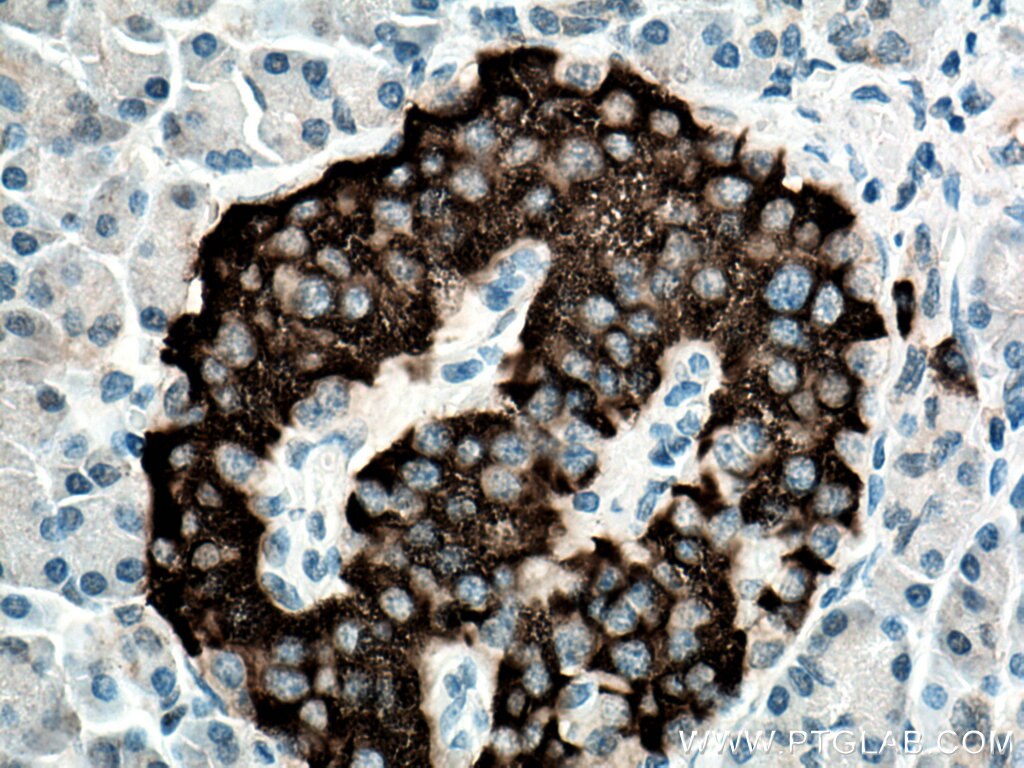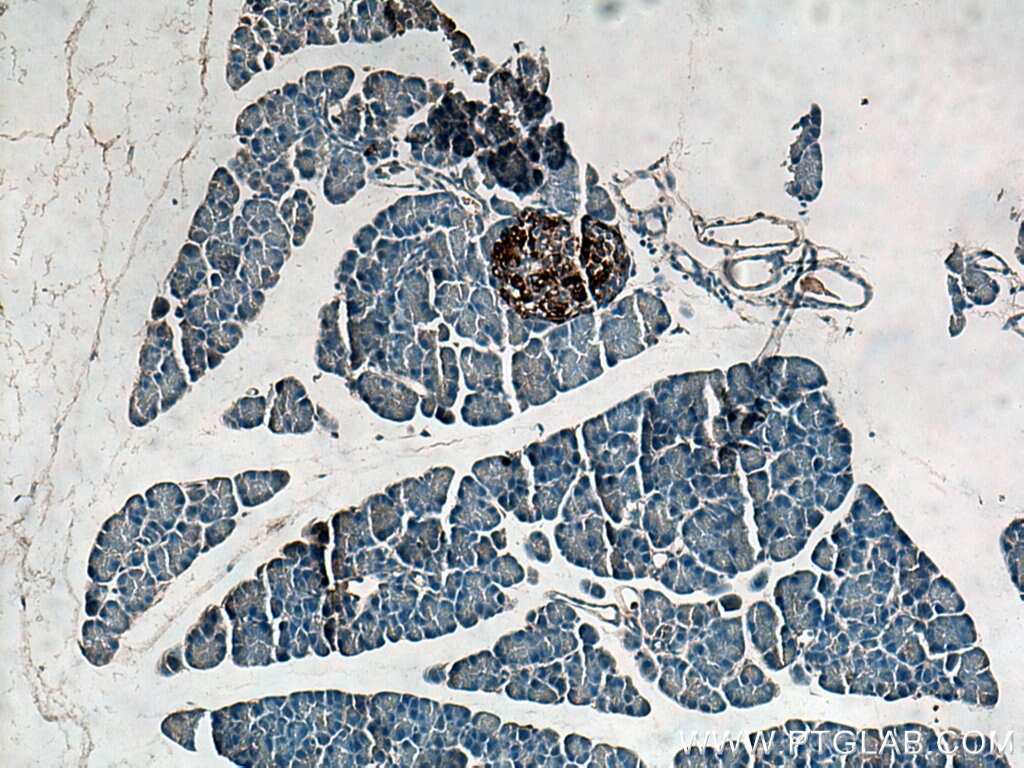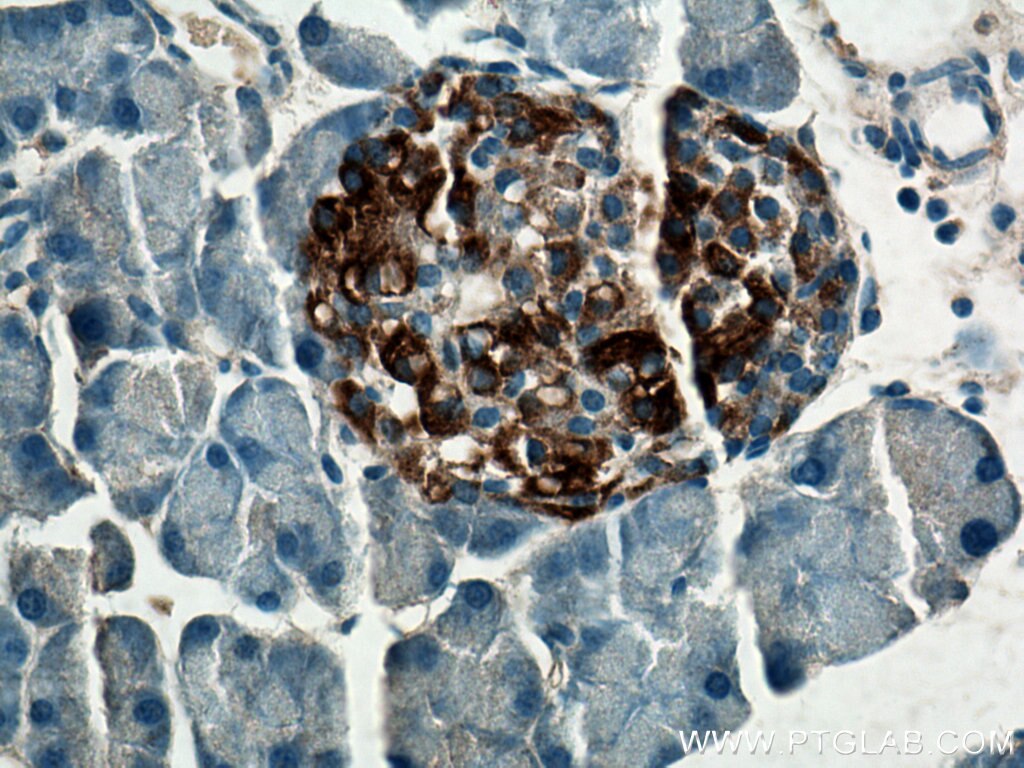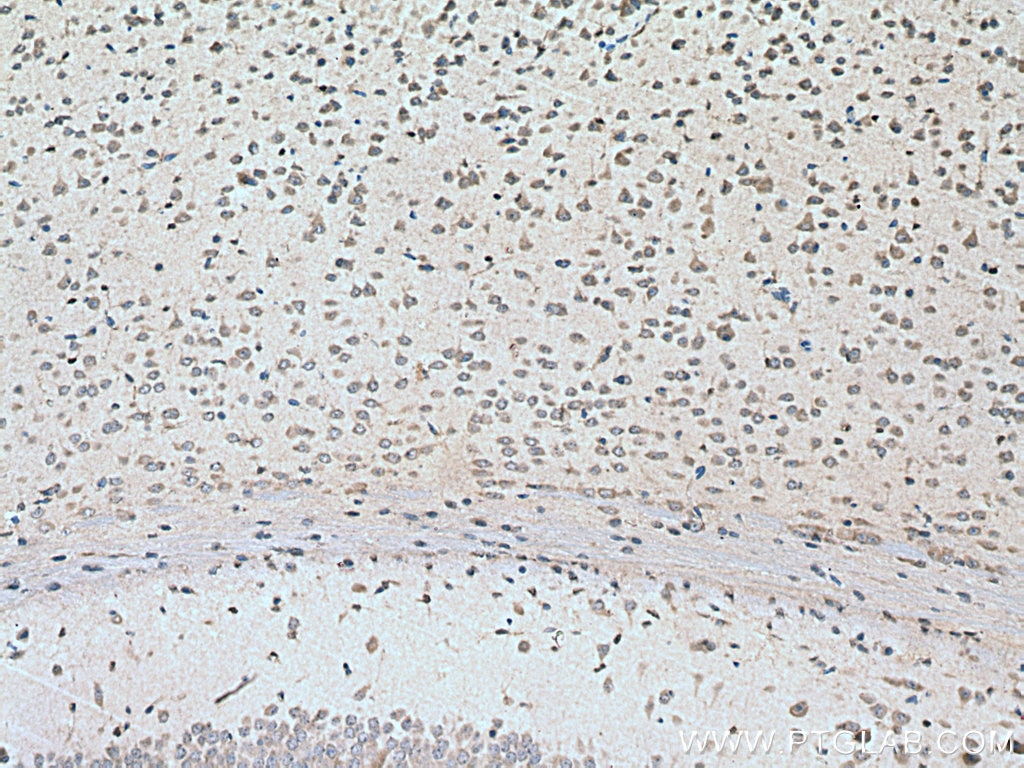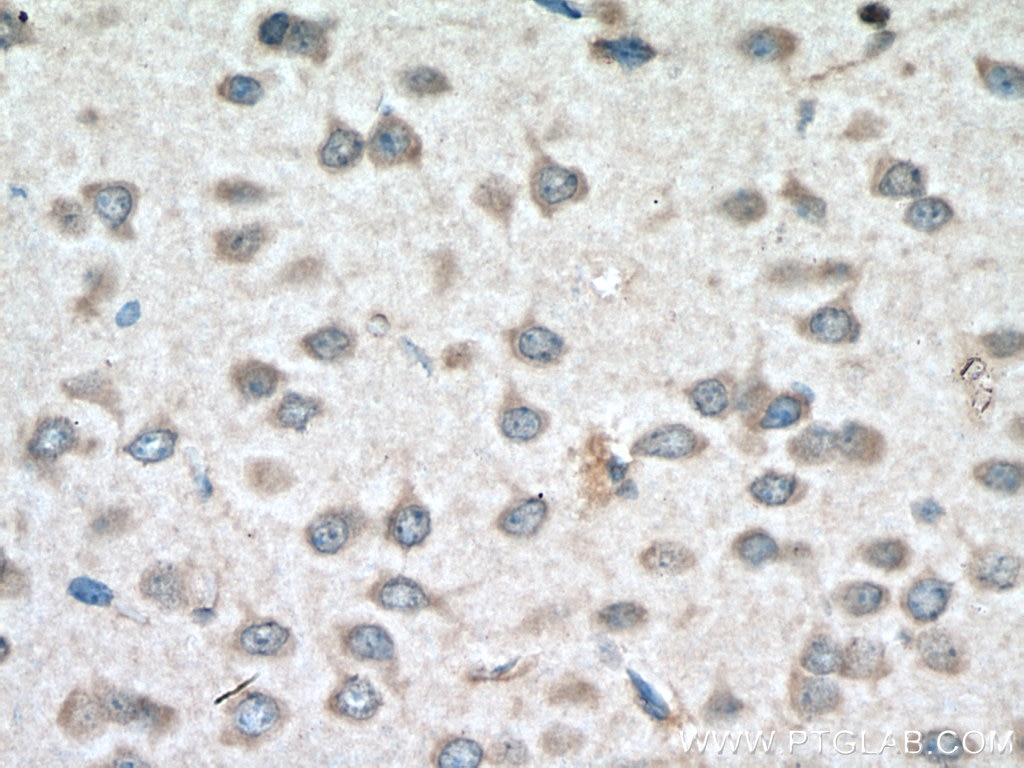Anticorps Polyclonal de lapin anti-PCSK1
PCSK1 Polyclonal Antibody for WB, IHC, ELISA
Hôte / Isotype
Lapin / IgG
Réactivité testée
Humain, rat, souris
Applications
WB, IHC, ELISA
Conjugaison
Non conjugué
N° de cat : 28219-1-AP
Synonymes
Galerie de données de validation
Applications testées
| Résultats positifs en WB | cellules BxPC-3, cellules HeLa |
| Résultats positifs en IHC | tissu pancréatique humain, tissu cérébral de souris, tissu pancréatique de souris il est suggéré de démasquer l'antigène avec un tampon de TE buffer pH 9.0; (*) À défaut, 'le démasquage de l'antigène peut être 'effectué avec un tampon citrate pH 6,0. |
Dilution recommandée
| Application | Dilution |
|---|---|
| Western Blot (WB) | WB : 1:2000-1:16000 |
| Immunohistochimie (IHC) | IHC : 1:50-1:500 |
| It is recommended that this reagent should be titrated in each testing system to obtain optimal results. | |
| Sample-dependent, check data in validation data gallery | |
Applications publiées
| WB | See 1 publications below |
| IHC | See 2 publications below |
Informations sur le produit
28219-1-AP cible PCSK1 dans les applications de WB, IHC, ELISA et montre une réactivité avec des échantillons Humain, rat, souris
| Réactivité | Humain, rat, souris |
| Réactivité citée | Humain, souris |
| Hôte / Isotype | Lapin / IgG |
| Clonalité | Polyclonal |
| Type | Anticorps |
| Immunogène | PCSK1 Protéine recombinante Ag28203 |
| Nom complet | proprotein convertase subtilisin/kexin type 1 |
| Masse moléculaire calculée | 753 aa, 84 kDa |
| Poids moléculaire observé | 66 kDa |
| Numéro d’acquisition GenBank | BC130295 |
| Symbole du gène | PCSK1 |
| Identification du gène (NCBI) | 5122 |
| Conjugaison | Non conjugué |
| Forme | Liquide |
| Méthode de purification | Purification par affinité contre l'antigène |
| Tampon de stockage | PBS with 0.02% sodium azide and 50% glycerol |
| Conditions de stockage | Stocker à -20°C. Stable pendant un an après l'expédition. L'aliquotage n'est pas nécessaire pour le stockage à -20oC Les 20ul contiennent 0,1% de BSA. |
Informations générales
PC1/3, encoded by the gene PCSK1, is synthesized in the endoplasmic reticulum (ER) as an inactive 94 kDa zymogen, where it is rapidly cleaved into a partially active 87-kDa precursor. When this protein reaches the secretory granules, the maturation process continues to generate a 74 kDa species and ends with further cleavage to a fully active, although enzymatically unstable, 66 kDa protein.
Protocole
| Product Specific Protocols | |
|---|---|
| WB protocol for PCSK1 antibody 28219-1-AP | Download protocol |
| IHC protocol for PCSK1 antibody 28219-1-AP | Download protocol |
| Standard Protocols | |
|---|---|
| Click here to view our Standard Protocols |
Publications
| Species | Application | Title |
|---|---|---|
Mol Nutr Food Res The Effect of Coenzyme Q10 Supplementation on Bile Acid Metabolism: Insights from Network Pharmacology, Molecular Docking, and Experimental Validation | ||
bioRxiv Optimization of protocols for immunohistochemical assessment of enteric nervous system in formalin fixed human tissue | ||
Rapid Commun Mass Spectrom Data-independent acquisition combined with liquid chromatography mass spectrometry technique to detect prognostic protein markers in type I gastric neuroendocrine neoplasm |
